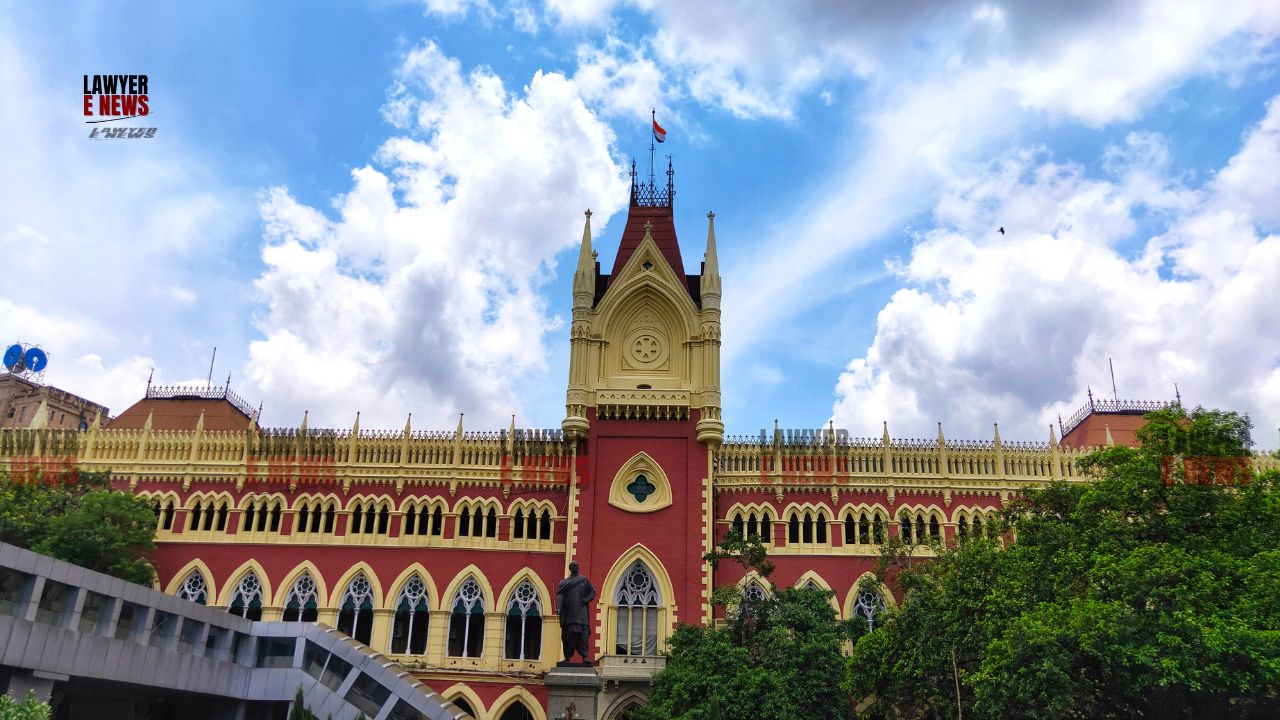-
by Admin
15 February 2026 5:35 AM



Calcutta High Court in Sri Susanta Kumar Sikdar v. The Managing Director, State Bank of India & Ors. dismissed the writ petition of a former bank officer challenging his dismissal after a departmental inquiry. The petitioner sought reinstatement and the release of superannuation benefits, arguing that his acquittal in a related criminal case should exonerate him in the disciplinary proceedings. The court held that the disciplinary action was lawful, conducted with due regard to natural justice, and the dismissal was proportionate to the financial misconduct, upholding the bank’s decision.
Criminal Acquittal Does Not Bar Departmental Action: Different Standards of Proof Apply
The court emphasized the distinction between criminal proceedings and departmental inquiries, reaffirming that criminal acquittal, based on the principle of "beyond reasonable doubt," does not absolve an employee of responsibility in disciplinary proceedings, where the standard is "preponderance of probability."
The petitioner, a former Branch Manager of the State Bank of India, was dismissed from service after being found guilty of various irregularities, including sanctioning loans in violation of bank norms and misappropriating funds. The disciplinary inquiry found that his actions caused significant financial loss to the bank, estimated at Rs. 1.56 crore. Although the petitioner was acquitted in a related criminal case under Sections 420 and 423 of the IPC, he argued that the acquittal should lead to his exoneration in the disciplinary proceedings. The petitioner also sought the release of his superannuation benefits.
Distinction Between Criminal and Departmental Proceedings: The petitioner’s key argument was that his acquittal in the criminal case should result in the setting aside of the disciplinary findings. The court rejected this contention, highlighting the different standards of proof required in criminal and departmental proceedings. While criminal cases demand proof beyond reasonable doubt, disciplinary proceedings are based on a preponderance of probability.
"The contention that acquittal in a criminal case should exonerate the petitioner in disciplinary proceedings is not tenable. The standard of proof in the two proceedings is different." [Para 23]
Fair Conduct of Disciplinary Proceedings: The petitioner argued that the disciplinary proceedings violated principles of natural justice. However, the court found that the petitioner had been given sufficient opportunities to defend himself, examine witnesses, and access documents. The inquiry officer’s findings were based on documentary evidence and were upheld by both the disciplinary and appellate authorities.
"The disciplinary authority followed due process, and the petitioner’s rights were adequately protected." [Para 26]
Proportionality of Punishment: The petitioner contended that the punishment of dismissal was disproportionate to the charges. The court, however, held that given the magnitude of the financial loss caused by the petitioner’s actions, the dismissal was appropriate and proportionate.
"The penalty of dismissal is proportionate to the gravity of the misconduct, especially considering the financial loss of Rs. 1.56 crore." [Para 25]
The court carefully analyzed the findings of the disciplinary inquiry, the documentary evidence, and the reasons provided by the disciplinary and appellate authorities. It rejected the petitioner’s argument that the disciplinary proceedings were flawed due to his acquittal in the criminal case. The court noted that there was no criminal case filed regarding the misappropriation at Garbeta Branch, where a significant portion of the financial irregularities occurred.
Disciplinary Findings Supported by Evidence: The court found that the disciplinary findings were based on strong documentary evidence, including records of financial transactions. The inquiry officer’s report, which was reviewed by the disciplinary and appellate authorities, was comprehensive and well-reasoned.
Dismissal Appropriate for Public Servants: Given the petitioner’s position as a Branch Manager of a nationalized bank, the court held that his misconduct warranted dismissal. The court emphasized the importance of maintaining discipline and integrity in public service.
"The findings and the penalty imposed are neither perverse nor excessive. The decision is based on strong evidence and principles of natural justice." [Para 26]
The Calcutta High Court dismissed the writ petition, upholding the disciplinary authority’s decision to dismiss the petitioner from service. The court found no reason to interfere with the findings of the inquiry, which were based on substantial evidence. The petitioner’s plea for reinstatement and release of superannuation benefits was denied, and the court emphasized the need for proportionate punishment in cases involving financial misconduct by public servants.
Date of Decision:19/09/2024
Sri Susanta Kumar Sikdar v. The Managing Director, State Bank of India & Ors.
